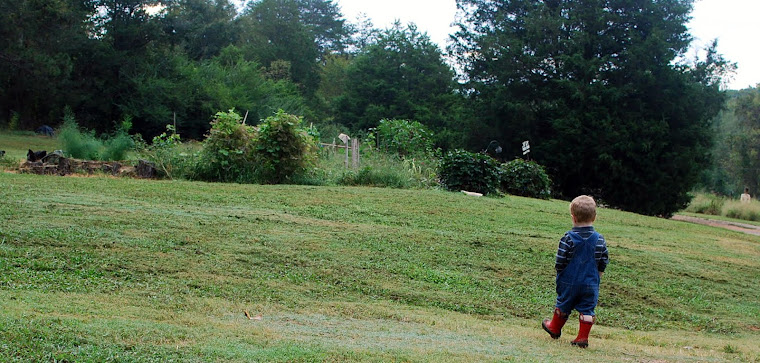Agriculture feeds her children, but industry gives birth to children she cannot feed.
The child who comes into the world in an
agricultural family finds his sustenance already assured, for the earth
that his parents cultivate in his turn awaits him to give him is bread.
The child born into an industrial family
expects his sustenance from the salary he will earn if a master employs
him, and if his industry is not stricken by events that could make it
falter, or shut down, or prevent the sale of its products.
The farmer lives from his produce even
when he does not sell it. The industrial worker cannot live unless he
sells what he produces.
Thus, the agricultural family enjoys an
existence independent of men and events, while the industrial family is
dependent upon them both.
A farm is indeed a family whose head is
the father. Whether he owns or rents the farm, he busies himself with
the same labors as his servants and eats the same bread, often at the
same table. The farm nourishes all its offspring. It has occupations
for those of all ages and both sexes. Even the elderly, who cannot
perform heavy labor, finish their careers as they began it and stay
around the house watching the children and animals.
There is nothing similar to this in the
industrial family, whose members work in isolation and often in
different industries, and who do not know their master apart from the
exigencies of his commands. Industry does not nourish all ages and both
sexes. It does employ the child, and often so young that his health
and strength are ruined. The child may receive some instruction, but he
is abandoned in his advanced years when he can no longer work. Then
the industrial worker has no bread except what he takes from his
children’s salary or what he receives from public charity.
The farmer toils from the rising to the
setting of the sun but never at night. He rests on Sunday and takes up
his work again on Monday. The industrial worker works even at night in
order to gain a higher salary, especially when he works at home by the
piece. Whether he rests on Sunday or not, overheated by his forced
labor, on Monday he debauches.
The farmer works outside and standing
up. He strengthens his body by the hard and painful labor of the fields
and exerts his intelligence upon the numerous details and variations in
the culture of the earth, trees, and beasts. He tames the animals and
forces rebellious nature to submit to his care. The industrial worker
works hunched over and sedentary, turns a crank, makes the shuttle go to
and fro, and pulls together the threads. He spends his life in cellars
or attics and, becoming a machine himself, he exerts his fingers, but
never his mind. It can thus be said that there is nothing less
industrious than the industrial worker.
Everything improves the intelligence of
the farmer and lifts his thoughts towards Him who gives fruitfulness to
the earth, dispenses the seasons, and makes the fruit ripen. Everything
debases the intelligence of the worker. He sees nothing above the
master who employs him, or at best the inventor of the machine to which
he is attached.
We can thus say that the former waits for everything from God, and that the latter receives everything from man.
The farmer tells his neighbors of his
discoveries and new processes that he invents to improve his
cultivation. The industrialist and the merchant keep their speculations
secret. We can thus say that the agriculture that disperses men about
the countryside unites them without bringing them together, while the
commerce that crowds them into cities brings them together without
uniting them.

That is a wonderful excerpt! Where might a person find the essay in its entirety?
ReplyDelete